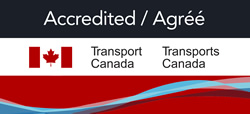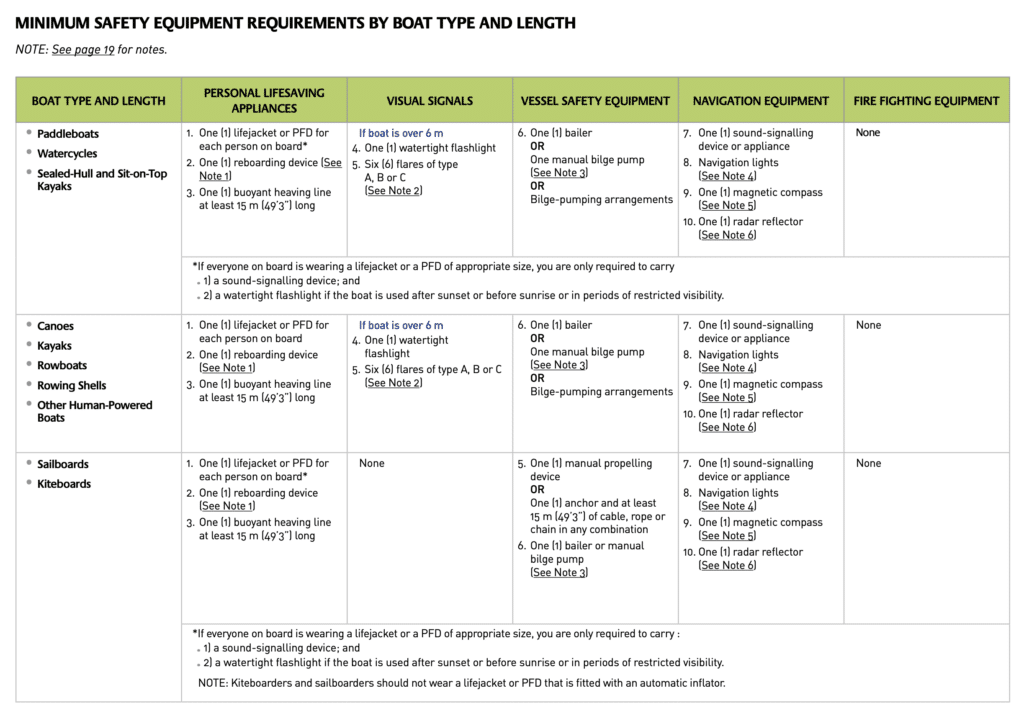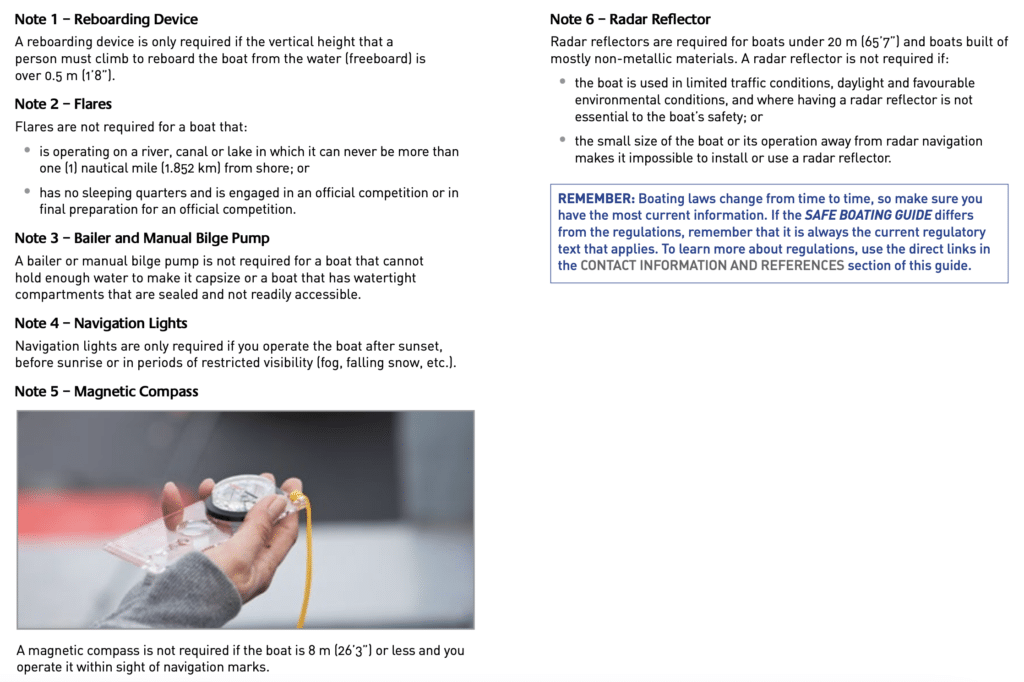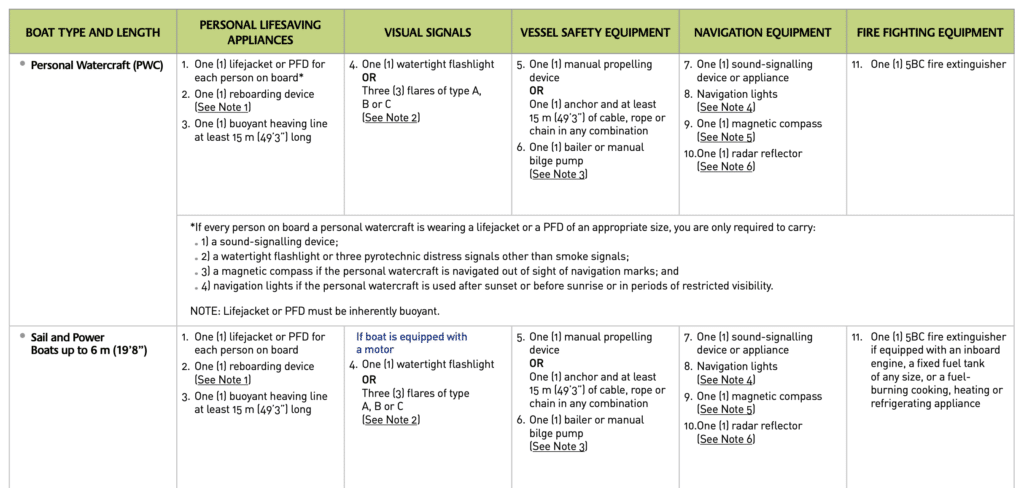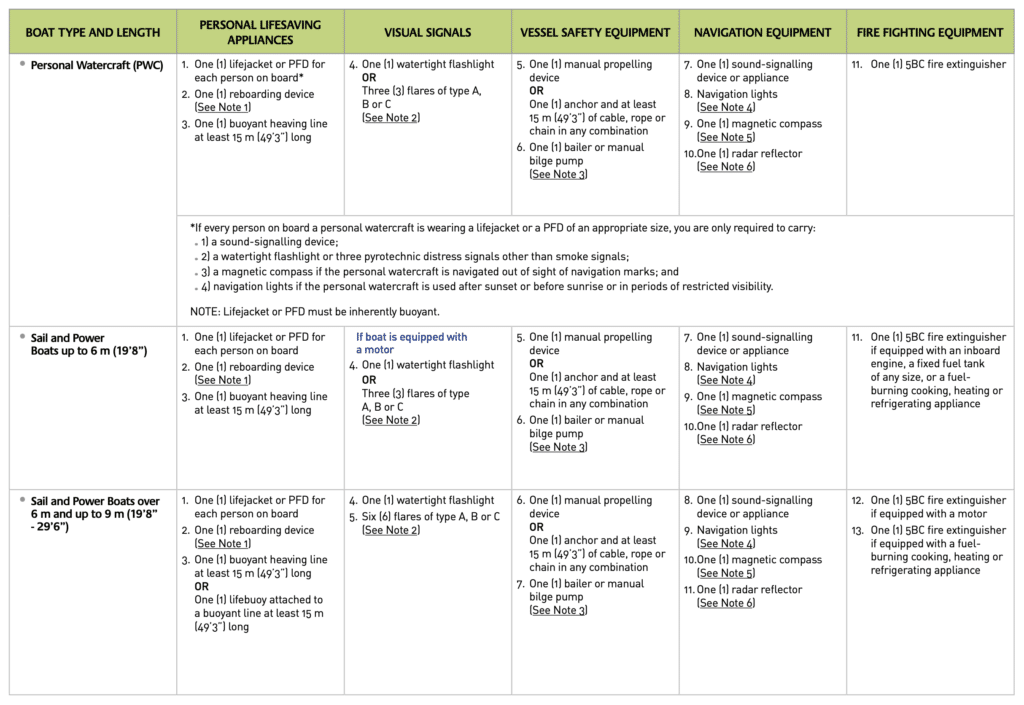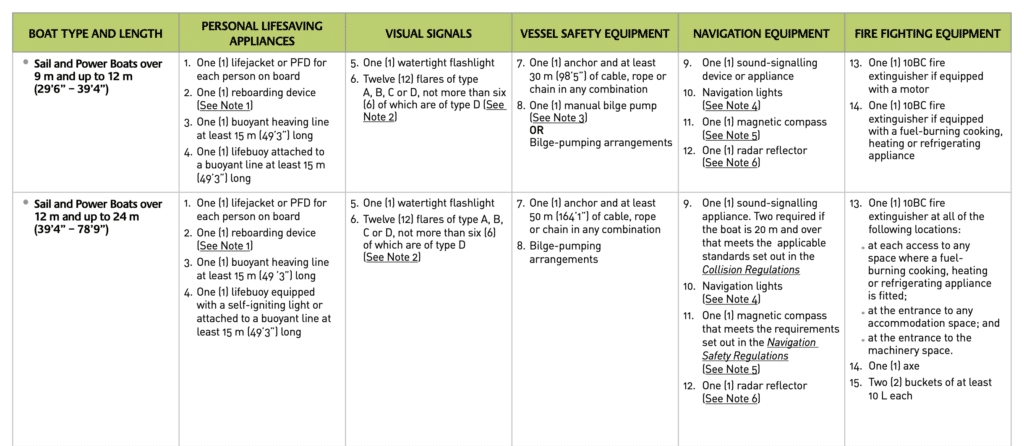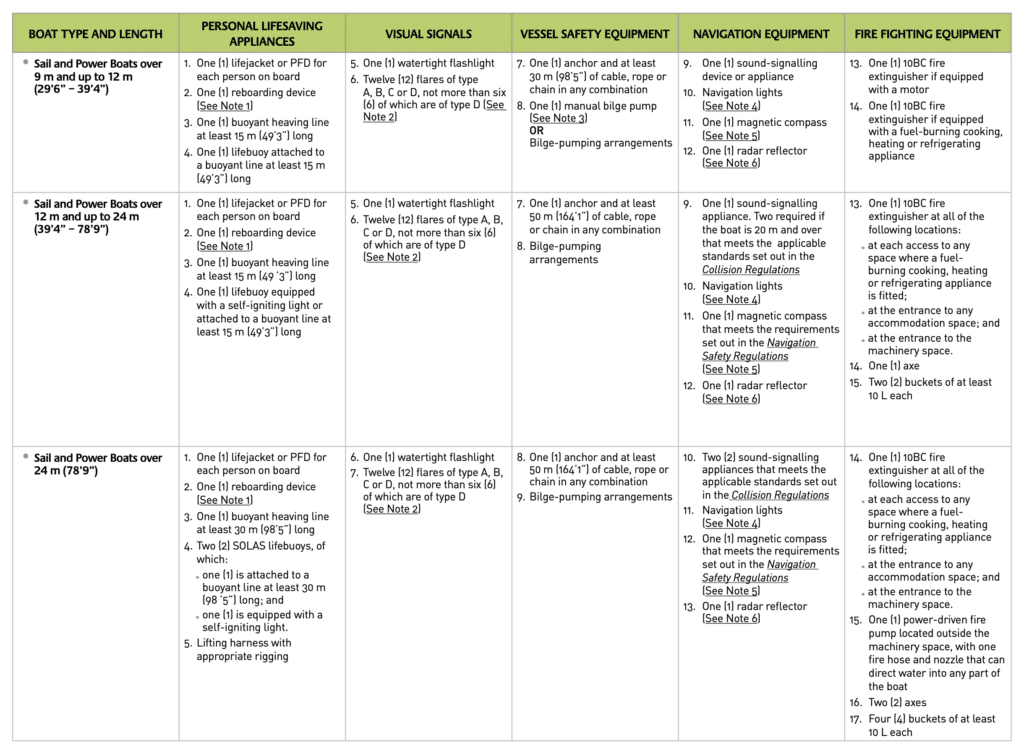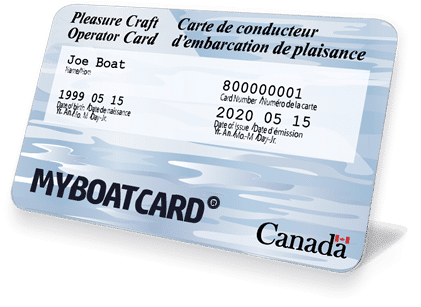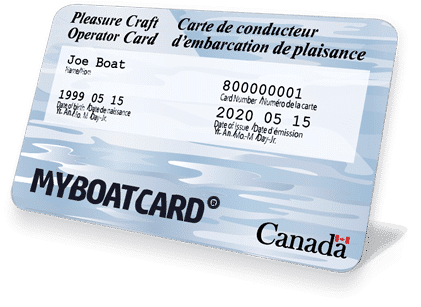Required Boat Safety Equipment in Canada
Minimum required safety equipment for each vessel size.
What safety equipment do I need for my boat in Canada?
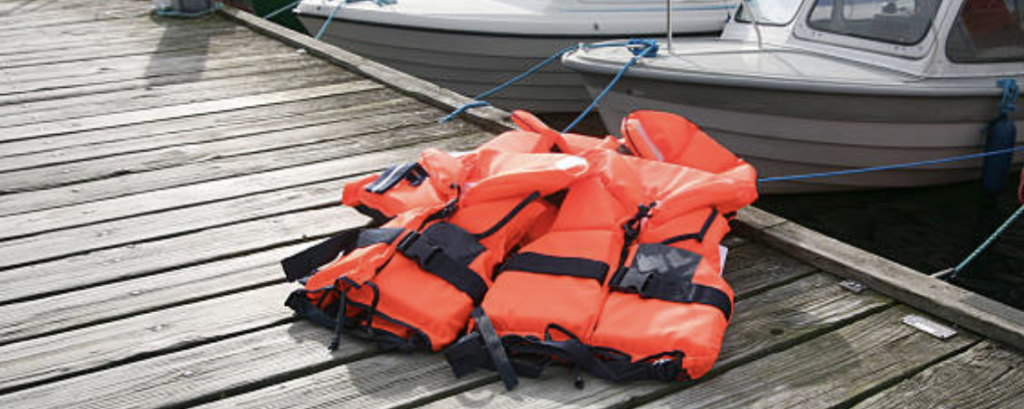
As a boat operator in Canada, you are responsible for the safety of everyone on board your vessel. This includes equipping your boat with the necessary safety gear and ensuring that you and your passengers are familiar with its usage.
In Canada, the Canadian Small Vessel Regulations set out the minimum safety equipment required. The safety equipment varies depending on the type and size of the vessel. Failure to comply with these regulations can result in substantial fines for each missing safety item
In this article, we’ll discuss the safety equipment that is legally required you need to have on board your boat or PWC when operating in Canadian waters.
Table of Contents
Transport Canada Safe Boating Guide
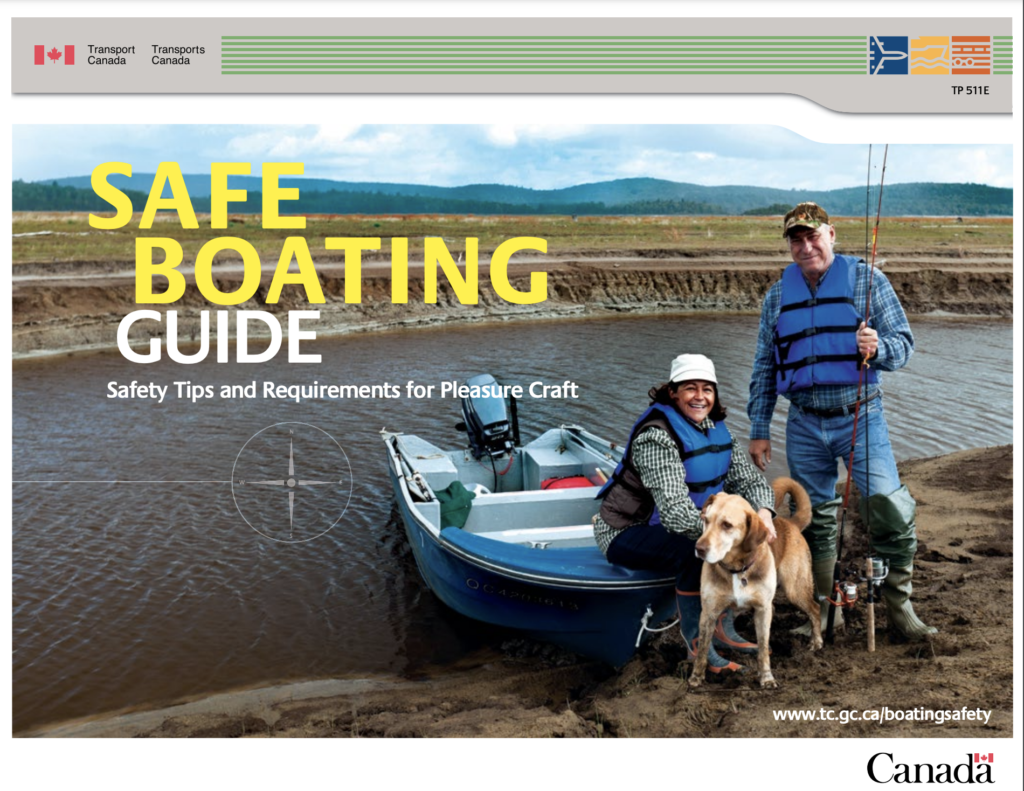 The safety equipment required on a pleasure craft can vary based on the size and type of vessel. The Transport Canada Safe Boating Guide lays out the minimum requirements for each category of vessel in a PDF guide.
The safety equipment required on a pleasure craft can vary based on the size and type of vessel. The Transport Canada Safe Boating Guide lays out the minimum requirements for each category of vessel in a PDF guide.
REMEMBER: Always wear your life jacket or PFD.
According to the Drowning Prevention Research Centre, over 80% of individuals who died as the result of a recreational boating-related incident were not wearing a Personal Flotation Device (PFD) or lifejacket at the time of the incident.
Human-Powered Pleasure Craft
Human-powered pleasure craft up to 6 metres in length (19’8″) the following safety equipment are required:
- 1x Lifejacket or PFD – for each person on board
- 1x Reboarding device, if the freeboard distance exceeds 0.5 meters [See Note 1]
- 1x Buoyant heaving line of at least 15 meters (49’3” feet)
- 1x Bailer or 1x manual bilge pump [See Note 3]
- 1x Sound signalling device
- Navigation lights [not required if operated in daylight and good visibility. See Note 4]
- 1x Magnetic compass [not required within sight of navigation marks. See Note 5]
- 1x Radar reflector [not required under most day and near-shore use. See Note 6]
For a human-powered pleasure craft over 6 metres – this additional safety equipment are required:
- 1x Watertight flashlight
- 6x Type A, B, or C flares [max. 2 smoke signals. See Note 2]
Since 2018, if everyone on a paddleboat, watercycle, or sealed-hull / sit-on-top kayak is wearing a lifejacket or PFD of the appropriate size, only the following safety equipment is required:
- 1x Lifejacket or PFD – for each person on board
- 1x Sound signalling device
- 1x Watertight flashlight [not required if operated in daylight and good visibility]
.
Image Source : Transport Canada – Safe Boating Guide : Minimum Safety Equipment Required For Human-Powered Pleasure Crafts [Page 16].
Image Source : Transport Canada – Safe Boating Guide : Minimum Safety Equipment Notes [Page 19]
Personal Watercraft (PWC)
If everyone on the Personal Watercraft (PWC) is wearing a lifejacket or PFD of the appropriate size, the following safety equipment is required:
- 1x Lifejacket or PFD – for each person on board
- 1x Sound signalling device
- 1x Watertight flashlight or 3x type A, B, or C flares [See Note 2]
- 1x Magnetic compass [not required within sight of navigation marks]
- Navigation lights [not required if operated in daylight and good visibility]
If someone is not wearing a lifejacket or PFD the following additional safety equipment is required:
- 1x Reboarding device, if the freeboard distance exceeds 0.5 meters [See Note 1]
- 1x Buoyant heaving line of at least 15 meters (49’3” feet)
- 1x Manual propelling device or an 1x anchor with at least 15 meters of rope, cable, or chain
- 1x Bailer or 1x manual bilge pump [See Note 3]
- 1x Radar reflector [not required under most day and near-shore use. See Note 6]
- 1x Fire extinguisher – class 5BC
Image Source : Transport Canada – Safe Boating Guide : Minimum Safety Equipment Required For Personal Watercraft (PWC) [Page 17]
.
Image Source : Transport Canada – Safe Boating Guide : Minimum Safety Equipment Notes [Page 19]
Sail and Power Boats up to 6 metres in length (19'8")
For all sail and power boats up to 6 metres in length, the following minimum safety equipment is required:
- 1x Lifejacket or PFD – for each person on board
- 1x Reboarding device, if the freeboard distance exceeds 0.5 meters [See Note 1]
- 1x Buoyant heaving line of at least 15 meters (49’3” feet)
- 1x Watertight flashlight or 3x type A, B, or C flares [not required if the boat does not have a motor. See Note 2]
- 1x Manual propelling device or 1x anchor with at least 15 meters of rope, cable, or chain
- 1x Bailer or 1x manual bilge pump [See Note 3]
- 1x Sound signalling device
- Navigation lights [not required if operated in daylight and good visibility. See Note 4]
- 1x Magnetic compass [not required within sight of navigation marks. See Note 5]
- 1x Radar reflector [not required under most day and near-shore use. See Note 6]
- 1x Fire extinguisher – class 5BC [if equipped with an inboard engine, fixed fuel tank, fuel-burning stove, fridge or heater.
.
Image Source : Transport Canada – Safe Boating Guide : Minimum Safety Equipment Required For Sail and Power Boats up to 6m [Page 17]
.
Image Source : Transport Canada – Safe Boating Guide : Minimum Safety Equipment Notes [Page 19]
TYPES OF FLARES
- Type A: Parachute flares (burns for at least 40 seconds)
- Type B: Multi-Star flares (burns 4 to 5 seconds).
- Type C: Handheld flares.
- Type D: Handheld or buoyant smoke flare (day use only).
Sail and Power Boats over 6 m and up to 9 m (19’8” – 29’6”)
For all sail and power boats over 6 m and up to 9 m in length, the following minimum safety equipment is required:
- 1x Lifejacket or PFD – for each person on board
- 1x Reboarding device, if the freeboard distance exceeds 0.5 meters [See Note 1]
- 1x Buoyant heaving line of at least 15 meters (49’3” feet) or 1x lifebuoy attached to a buoyant line of at least 15 m (49’3”)
- 1x Watertight flashlight
- 6x type A, B, or C flares [not required if the boat is more than 1 nautical mile (1.8 km) from shore. See Note 2]
- 1x Manual propelling device or 1x anchor with at least 15 meters of rope, cable, or chain
- 1x Bailer or 1x manual bilge pump [See Note 3]
- 1x Sound signalling device
- Navigation lights [not required if operated in daylight and good visibility. See Note 4]
- 1x Magnetic compass [not required within sight of navigation marks. See Note 5]
- 1x Radar reflector [not required under most day and near-shore use. See Note 6]
- 1x Fire extinguisher – class 5BC [if equipped with a motor]
- 1x Fire extinguisher – class 5BC [if equipped with a fuel-burning stove, fridge or heater]
.
Image Source : Transport Canada – Safe Boating Guide : Minimum Safety Equipment Required For Sail and Power Boats over 6m and up to 9m [Page 17]
.
Image Source : Transport Canada – Safe Boating Guide : Minimum Safety Equipment Notes [Page 19]
Sail and Power Boats over 9 m and up to 12 m (29’6” – 39’4”)
For all sail and power boats over 6 m and up to 9 m in length, the following minimum safety equipment is required:
- 1x Lifejacket or PFD – for each person on board
- 1x Reboarding device, if the freeboard distance exceeds 0.5 meters [See Note 1]
- 1x Buoyant heaving line of at least 15 meters (49’3” feet)
- 1x Lifebuoy attached to a buoyant line of at least 15 meters (49’3”)
- 1x Watertight flashlight
- 1x Twelve type A, B, C or D flares [not more than 6x type D flares. See Note 2]
- 1x Anchor with at least 30 meters (98’5”) of rope, cable, or chain
- 1x Manual bilge pump or 1x powered bilge pump [See Note 3]
- 1x Sound signalling device
- Navigation lights [See Note 4]
- 1x Magnetic compass [See Note 5]
- 1x Radar reflector [See Note 6]
- 1x Fire extinguisher – class 10BC [if equipped with a motor]
- 1x Fire extinguisher – class 10BC [if equipped with a fuel-burning stove, fridge or heater]
.
Image Source : Transport Canada – Safe Boating Guide : Minimum Safety Equipment Required For Sail and Power Boats over 9m and up to 12m [Page 18]
.
Image Source : Transport Canada – Safe Boating Guide : Minimum Safety Equipment Notes [Page 19]
Sail and Power Boats over 12 m and up to 24 m (39’4” – 78’9”)
For all sail and power boats over 12 m and up to 24 m in length, the following minimum safety equipment is required:
- 1x Lifejacket or PFD – for each person on board
- 1x Reboarding device, if the freeboard distance exceeds 0.5 meters [See Note 1]
- 1x Buoyant heaving line of at least 15 meters (49’3” feet)
- 1x Lifebuoy lifebuoy equipped with a self-igniting light or attached to a buoyant line at least 15 m (49’3”)
- 1x Watertight flashlight
- 12x type A, B, C or D flares [not more than 6x type D flares. See Note 2]
- 1x Anchor with at least 50 meters (164’1”) of rope, cable, or chain
- 1x Powered bilge pump [See Note 3]
- 1x Sound signalling device [2x sound signalling devices (i.e., a fitted whistle) required if the boat is longer than 20 m (65”7”). See Collision Regulations]
- Navigation lights [See Note 4]
- 1x Magnetic compass [See Note 5]
- 1x Radar reflector [See Note 6]
- 1x Fire extinguisher – class 10BC at all of the following locations:
– at each access to any space where a fuel-burning cooking, heating or refrigerating appliance is fitted
– at the entrance to any accommodation space; and
– at the entrance to the machinery space - 1x Axe
- 2x Buckets with a minimum capacity of 10 L each
.
Image Source : Transport Canada – Safe Boating Guide : Minimum Safety Equipment Required For Sail and Power Boats over 12m and up to 24m [Page 18]
.
Image Source : Transport Canada – Safe Boating Guide : Minimum Safety Equipment Notes [Page 19]
Sail and Power Boats over 24 m (78’9”)
For all sail and power boats over 12 m and up to 24 m in length, the following minimum safety equipment is required:
- 1x Lifejacket or PFD – for each person on board
- 1x Reboarding device, if the freeboard distance exceeds 0.5 meters [See Note 1]
- 1x Buoyant heaving line of at least 30 meters (98’5” feet)
- 2x SOLAS lifebuoys, of which:
– 1x is attached to a buoyant line at least 30 m (98 ’5”)
– and 1x is equipped with a self-igniting light. - 1x Lifting harness with appropriate rigging
- 1x Watertight flashlight
- 12x type A, B, C or D flares [not more than 6x type D flares. See Note 2]
- 1x Anchor with at least 50 meters (164’1”) of rope, cable, or chain
- 1x Powered bilge pump [See Note 3]
- 2x Sound signalling devices [must meet the standards set out in the Collision Regulations]
- Navigation lights [See Note 4]
- 1x Magnetic compass [See Note 5]
- 1x Radar reflector [See Note 6]
- 1x Fire extinguisher – class 10BC at all of the following locations:
– at each access to any space where a fuel-burning cooking, heating or refrigerating appliance is fitted
– at the entrance to any accommodation space; and
– at the entrance to the machinery space - 1x Power-driven fire pump located outside the machinery space, with one fire hose and nozzle that can direct water into any part of the boat
- 2x Axes
- 4x Buckets with a minimum capacity of 10 L each
.
Image Source : Transport Canada – Safe Boating Guide : Minimum Safety Equipment Required For Sail and Power Boats over 24m [Page 18]
.
Image Source : Transport Canada – Safe Boating Guide : Minimum Safety Equipment Notes [Page 19]
Notes
Note 1 - Reboarding Device
A reboarding device is only required if the vertical height that a person must climb to reboard the boat from the water (freeboard) is over 0.5 m (1’8”).
Note 2 - Flares
Flares are not required for a boat that:
- is operating on a river, canal or lake in which it can never be more than
one (1) nautical mile (1.852 km) from shore; or - has no sleeping quarters and is engaged in an official competition or in
final preparation for an official competition.
Note 3 - Bailer and Manual Bilge Pump
A bailer or manual bilge pump is not required for a boat that cannot hold enough water to make it capsize or a boat that has watertight compartments that are sealed and not readily accessible
Note 4 - Navigation Lights
A bailer or manual bilge pump is not required for a boat that cannot hold enough water to make it capsize or a boat that has watertight compartments that are sealed and not readily accessible
Note 5 - Magnetic Compass
A magnetic compass is not required if the boat is 8 m (26’3”) or less and you operate it within sight of navigation marks.
Note 6 - Radar Reflector
Radar reflectors are required for boats under 20 m (65’7”) and boats built of
mostly non-metallic materials. A radar reflector is not required if:
- the boat is used in limited traffic conditions, daylight, and favourable
environmental conditions, and where having a radar reflector is not
essential to the boat’s safety; or - the small size of the boat or its operation away from radar navigation
makes it impossible to install or use a radar reflector.
Exceptions to Equipment Requirements
There are further exceptions to the required equipment for specific vessel types. Additional information on the following exceptions can be found in Section 2 – Subparts 3, 4, and 5 of the Canadian Small Vessel Regulations.
The following types of vessels may, under specific circumstances, qualify for exemption from meeting the minimum safety equipment requirements:
- Racing canoe
- Racing kayak
- Rowing shell
- Sailboard
- Closed multiple-division multihull
- A bailer-type closed hull
Additional Safety Equipment
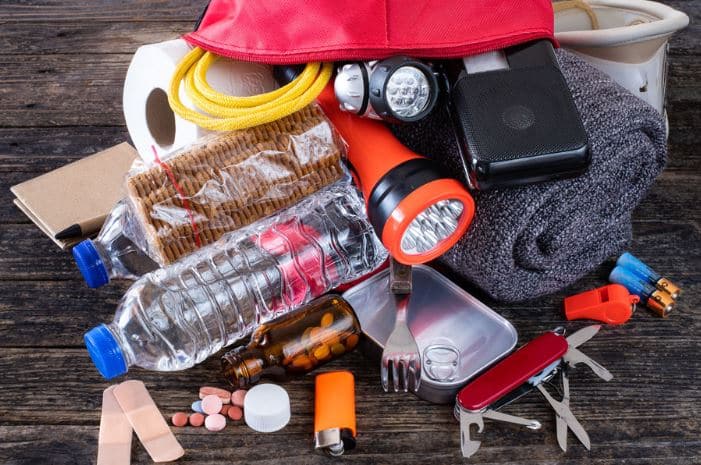
In addition to the minimum safety equipment required by law, there are additional safety items Transport Canada recommends you have onboard:
- A basic tool kit and spare parts for the motor
- A first-aid kit
- Warm, dry clothing for sudden weather changes in a waterproof bag
- Sunscreen, sunglasses, and hats for sun protection
- Snacks and drinking water
- VHF radio
- GPS
- Knotmeter
- Binoculars
- Anchor and chain
- A knife
- Waterproof matches or a lighter
- Battery-operated carbon monoxide detectors
- Life-raft
- Depth sounder
- Paper Charts
- Spotlight
- Safety harness
- Spare fire extinguisher
- Man overboard pole
Be Safe, Get Certified.
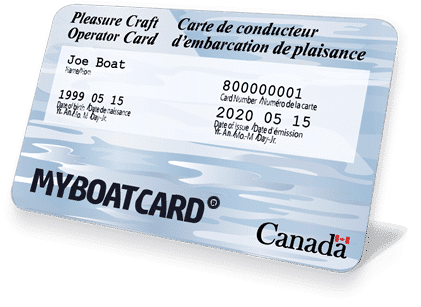 It is illegal to operate a powered boat in Canada without a boating license (or other proof of competency), and the fines for doing so can be significant. Additionally, obtaining a boating license is a good way to ensure that you are operating your boat safely and responsibly.
It is illegal to operate a powered boat in Canada without a boating license (or other proof of competency), and the fines for doing so can be significant. Additionally, obtaining a boating license is a good way to ensure that you are operating your boat safely and responsibly.
By completing a boating safety course and obtaining your boating license, you can gain the knowledge and skills needed to operate a boat safely, protect yourself and others, and avoid costly fines. If you want to test your knowledge – why not try out the free boating license practice test.
With the convenience and affordability of MyBoatCard.com’s online course, there is no reason not to get your boating license today.
Join the over 3 million certified Canadians, and get your Canadian boating license today!
TRY IT. FREE.
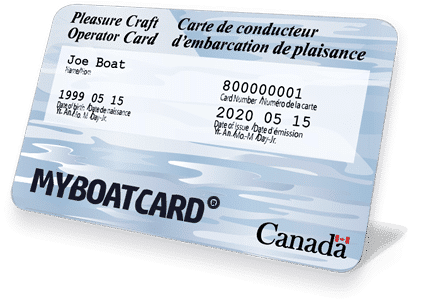
Transport Canada approved Boater Safety Course is free.
Take the course in your own time and risk free.
Other providers try to get you to pay upfront before you even have a chance to try out their course!

OVER
3,000,000
CERTIFIED
CANADIANS

TRANSPORT CANADA.
ACCREDITED.
MyBoatCard.com® is accredited by Transport Canada to deliver boating safety courses and administer tests for the issuance of Pleasure Craft Operator Cards, including replacement cards, under the Competency of Operators of Pleasure Craft Regulations.
